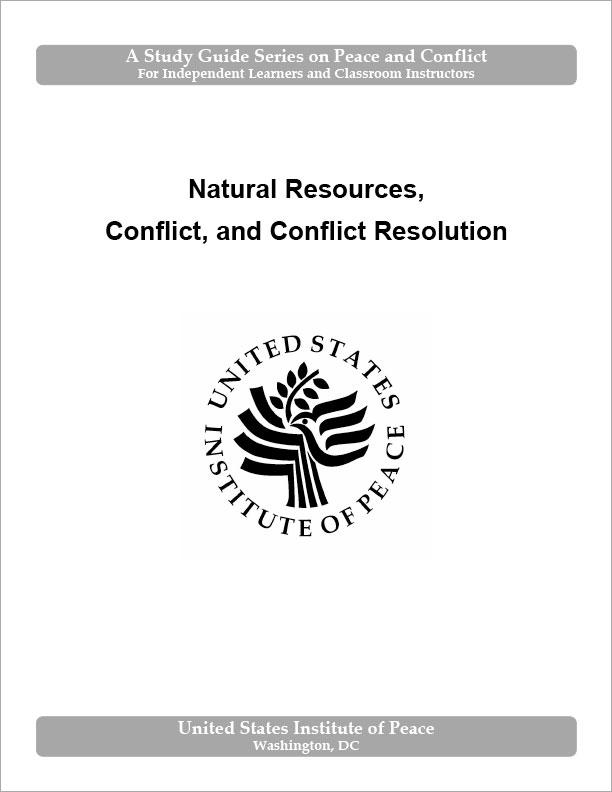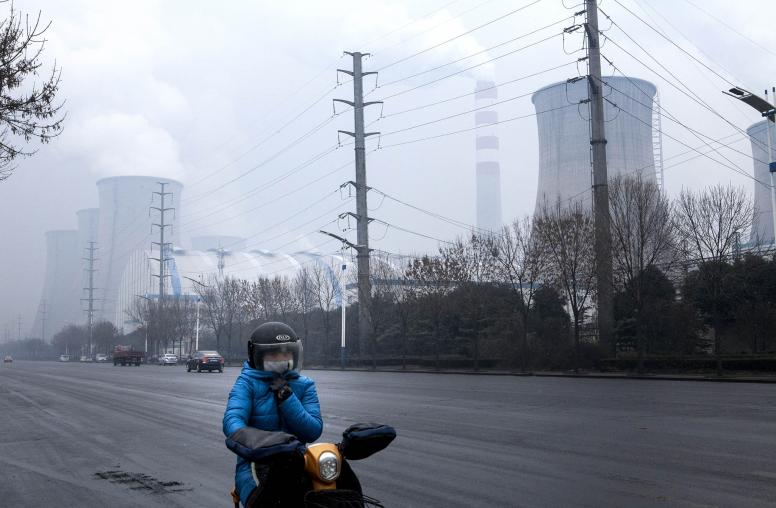Natural Resources, Conflict, and Conflict Resolution
Competition over natural resources such as oil or diamonds can lead to, intensify, or sustain violence—the resource curse—but natural resources can also play a role in managing and resolving conflict and preventing its reoccurrence. This study guide will illuminate the role of natural resources as causes of conflict, and their role in helping to bring about peace.

This study guide is designed to serve independent learners who want to find out more about international conflict and its resolution, as well as educators who want to introduce the topic to their students.
Features of the study guide include:
- Main text that discusses natural resources and related issues that play significant roles in managing conflicts and building international peace.
- A glossary of terms to help the reader build vocabulary used in the discussions about the topic.
- Discussion questions and activities to encourage critical thinking and active learning.
- A list of readings and multimedia resources for additional investigation and learning opportunities.
The study guide can be used by teachers and students to:
- Increase understanding of the complex relationship between natural resources and conflict and the challenges to addressing this global issue.
- Become familiar with strategies for conflict prevention, management, and resolution.
- Develop students’ analytical reading, writing, and research skills.
- Reinforce students’ abilities to produce a work product using traditional and electronic means of research, discussion, and document preparation.
- Locate lessons, bibliographic sources, factual materials, and multi-media resources to assist students in writing essays for submission to the National Peace Essay Contest.
The Study Guide includes all lesson plans, student handouts and instructions. The Study Guide is in PDF format. To view or print it you will need the free Adobe Acrobat reader.



